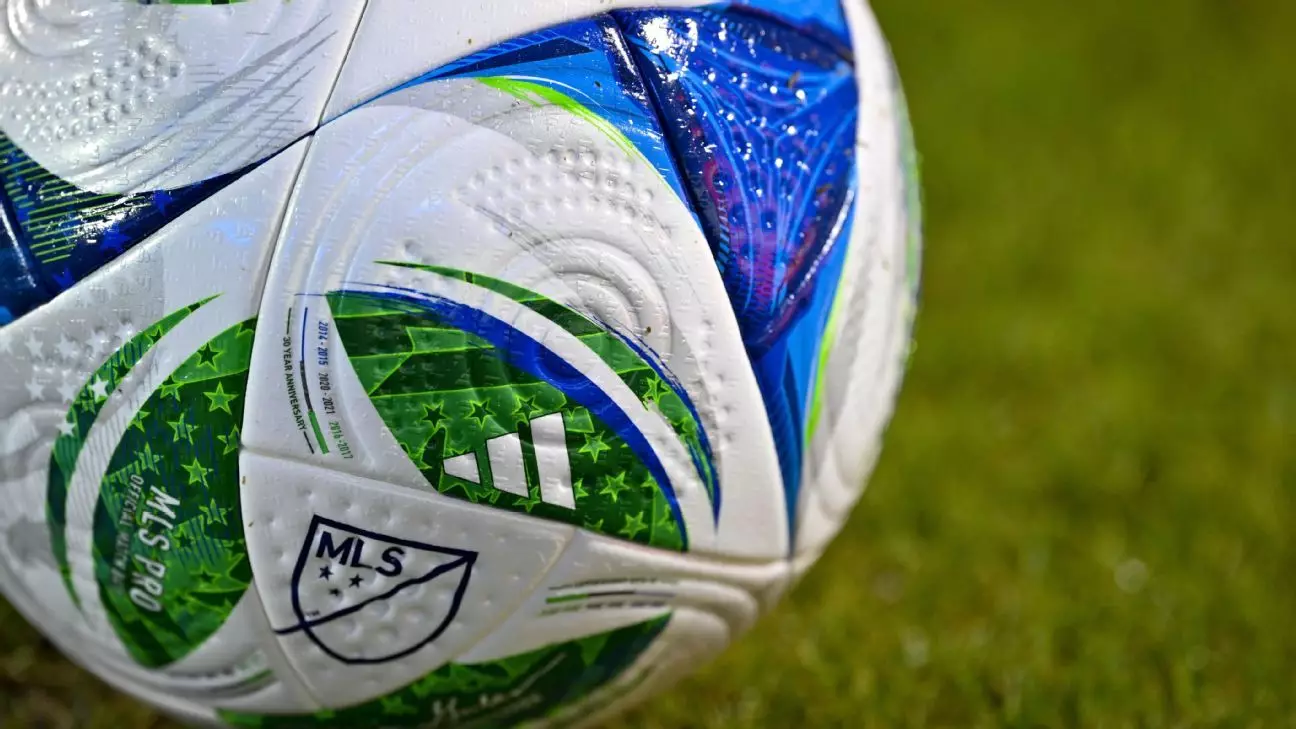The ongoing discussions between Major League Soccer (MLS) and the MLS Players Association (MLSPA) have unfolded into a tense standoff that raises fundamental questions about respect, recognition, and fairness in professional sports. The crux of the matter centers around the allocation of prize money and player compensation connected to the FIFA Club World Cup, a prestigious international tournament that many consider the pinnacle of club football. At the center of this dispute, the Seattle Sounders FC initiated a powerful form of protest on June 1, sporting shirts emblazoned with phrases like “Club World Cash Grab” and “Fair Share Now.” This symbolic act didn’t just reflect dissatisfaction; it resonated as a broader clarion call for players’ rights.
As the debate simmers on, one cannot help but empathize with the players’ plight. They are not just athletes competing for glory; they are workers who deserve a fair slice of the financial pie generated by their labor. The original collective bargaining agreement (CBA) stipulates that players receive 50% of money from external tournaments, capped at $1 million. However, the emerging proposal from the MLS, which earmarks only 20% of performance-related payments for the participating teams, reeked of condescension. It’s a slap in the face to the very individuals who sweat and toil for the league.
The Financial Disparities: A Concerning Trend
The figures tell a stark story. While the MLSPA argues that players should receive a larger percentage from the significant $28,650,000 windfall awarded to MLS by FIFA, the league’s proposed compensation remains far below international standards. This disparity illustrates a systemic issue within American soccer, where the players often find themselves at the mercy of league executives who prioritize profits over people. The MLSPA’s characterization of the MLS proposal as “retaliatory” not only reflects a frustration with the current negotiations but also reveals an essential conflict over respect and recognition.
It is essential to dissect the implications of such financial negotiations. The current trend shows an alarming tendency where league profits are not equitably distributed with the players who comprise the backbone of the league. The dissatisfaction is palpable; the players have made their voices heard. Yet, the protective clauses within the CBA render them unable to initiate a work stoppage over these disputes. Instead, they must rely on alternative forms of advocacy to amplify their call for justice.
Unity in the Face of Adversity: A Collective Voice
Despite the obstacles, the players stand resolute, united in their demand for equity. Their refusal to be cast aside by MLS – an organization that, according to the MLSPA, does not recognize their efforts, sends a clear message of solidarity. This unity in struggle transcends the individual interests of teams like LAFC, Inter Miami CF, and the Seattle Sounders. It underscores the notion that progress cannot be afforded at the cost of exploitation.
The players’ determination to leverage their collective voice is paramount in this struggle. It is not merely about money; it is about the very ethos of what professionalism in sports entails. Players are champions of the game. They are the stars who drive viewership and revenue. Their demand for compensation that reflects their contributions is not just reasonable—it is essential for the integrity of the league.
A Future Still Unwritten: Reflection and Reclamation
As the Club World Cup looms on the horizon, running from July 1 to July 13, the players find themselves in a pivotal position—one that could redefine their relationship with the league. While the current CBA restricts their ability to strike, it does not extinguish their right to engage in protected labor actions or orchestrate strategic protests. The lingering question remains: Will this current struggle result in meaningful change, or will it simply fade into the background noise of another season?
What becomes of the dialogue—and the subsequent negotiations—between the MLS and MLSPA? This ongoing dispute is a reflection of a larger trend not just in soccer but in all professional sports, where financial realities often clash with aspirations for equity and respect. As players continue to assert their worth, the reverberations of their fight for fair compensation could lead to a seismic shift in how the league values the very individuals who propel it forward. The battle for fair compensation is not just a contractual negotiation; it’s a transformative moment that could redefine the nature of professional sports, ensuring that the voices of athletes are heard, respected, and ultimately compensated fairly.

